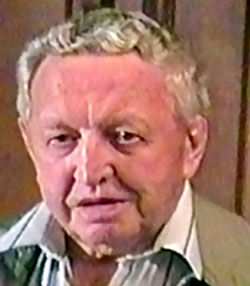Your cart is currently empty!

A matter of deception
He was a broad man, powerfully built and still strong in spite of his age. With his square face, small eyes and short neck, he looked like he had been a logger or a coal miner. Or perhaps a boxer; his nose looked like it had been broken, perhaps more than once.
His fingers were short and squarish, almost stubby. He shuffled the cards exactly the way you’d expect him to: roughly. He split the deck in two, slapped the two halves on the table, jerked his thumbs up to riffle the cards together, then shoved the halves together briskly between his palms. If you were a a card handler, you’d have cringed. No deck could survive such rough handling for very long. Who knows how many cards he must’ve bent, how many corners he must’ve broken….
In fact, the deck was in perfect condition. Had you picked it up and looked through it, you wouldn’t have found a single broken corner, nor a single card bent out of shape.
You wouldn’t have found his crimped key card, either.
He had the finest crimp — and possibly the best second deal — in the business. Those were the tools of his trade, for Willis Kenny had been a professional card sharp. In his line of work, he had no choice but to look natural. For him, that meant handling cards roughly — at least, in appearance. If he had handled cards elegantly and daintily, it would’ve looked suspicious and there’s a good chance that he’d have had his hands broken, not his nose. At the very least, he’d have been unable to ply his trade.
For magicians, the penalty for not looking completely natural is far less dramatic, of course. But there is a penalty. if our sleight-of-hand motions look out of place, we lessen the illusion of magic. Human beings are very good at noticing patterns; if there are differences in tension, in tempo, in speed, in smoothness, or any other aspect of motion, people will notice a change. Even though they may not know what we did, chances are that they’ll know that we did something, and that’s enough to diminish the magical experience.
When Willis retired and performed magic, he didn’t change the way he handled cards in the slightest. His apparent heavy-handedness increased the illusion of magic. To the audience, it was inconceivable that someone who handled cards as roughly, almost clumsily, as he did, would be able to pull anything off, let alone fine sleight-of-hand. Magic just seemed to happen, as if he had nothing to do with it except to invoke it. Which, after all, is ideal.
by
Tags:

Leave a Reply
You must be logged in to post a comment.